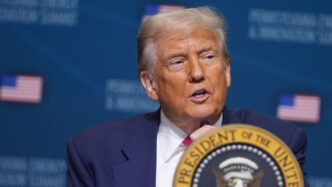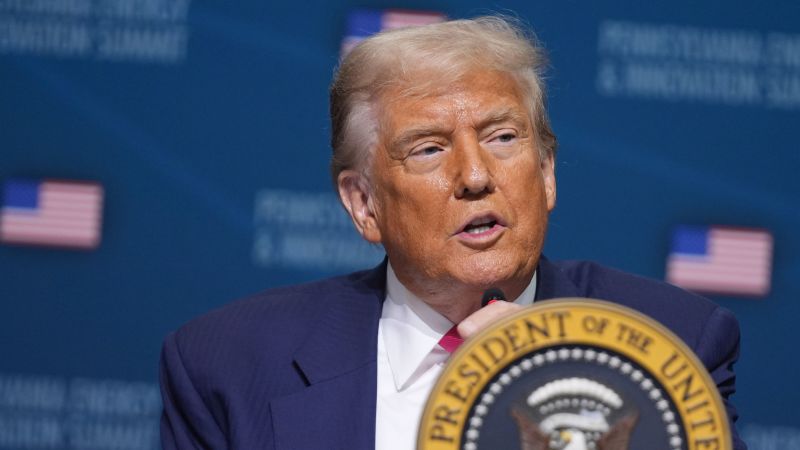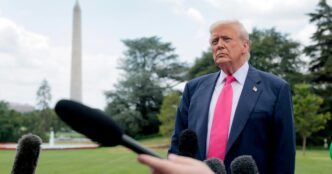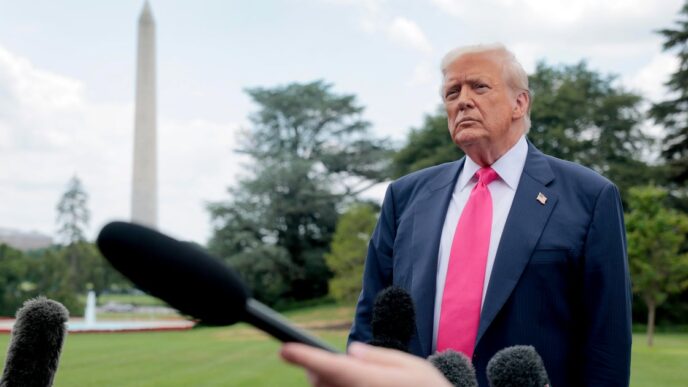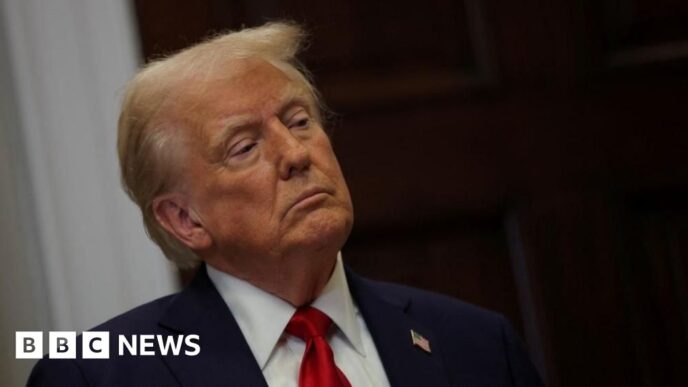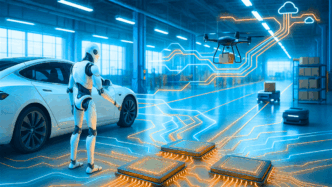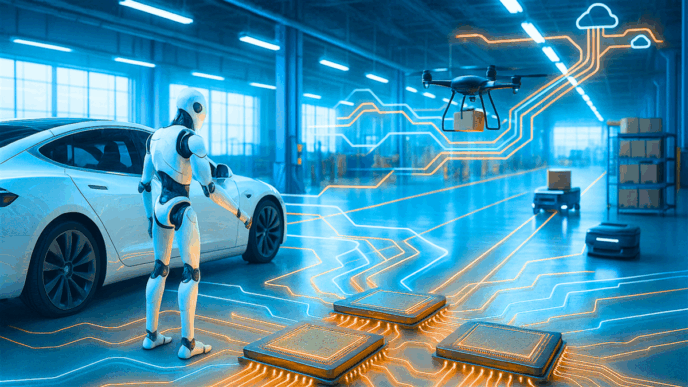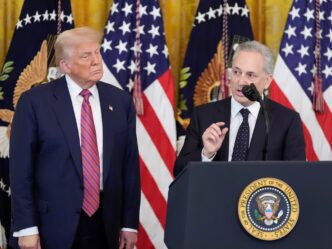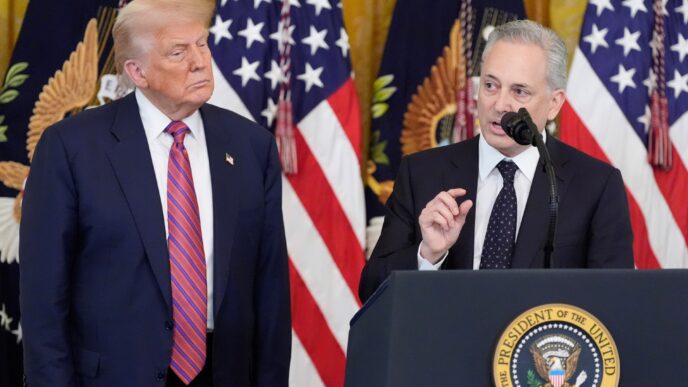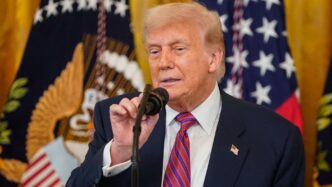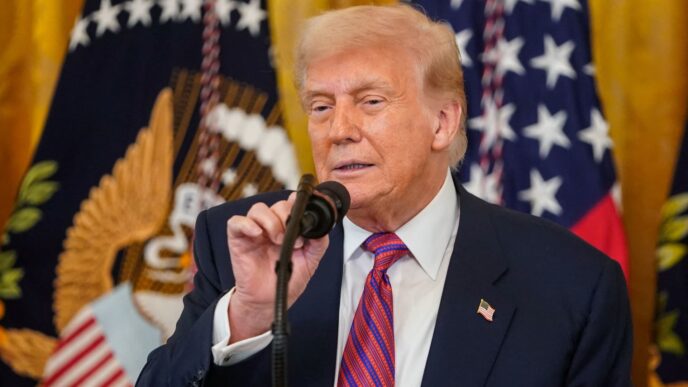Trump administration rolls out AI action plan to boost US tech leadership
The Trump administration launched its AI action plan Wednesday, aiming to cement the US as the global leader in AI. The plan focuses on cutting back regulation—except for pushing to remove political “bias” in AI models used by the government.
The plan has three pillars: speed up innovation, build more AI infrastructure in the US, and make American hardware and software the global standard for AI development.
It calls for federal AI systems to be “objective and free from top-down ideological bias,” per the 28-page White House document.
White House AI Czar David Sacks said on a press call:
“It’s a global competition now to lead in artificial intelligence,” said White House AI Czar David Sacks on a conference call with reporters Wednesday morning. “And we want the United States to win that race. AI is a revolutionary technology that’s going to have profound ramifications for both the economy and for national security, so it is just very important that America continue to be the dominant power in AI.”
The plan aims to slash “bureaucratic red tape” slowing AI development. It suggests streamlining permits for data centers, chip factories, and energy infrastructure. The government will also work with US tech firms to offer “full stack AI export packages” to allied countries, pushing US tech as a global AI standard.
Michael Kratsios, director of the White House Office of Science and Technology, said these policies can roll out in six months to a year.
The move is part of Trump’s broader push to outpace China in AI. Trump recently scrapped Biden-era AI regulations and reversed AI chip export limits, letting Nvidia resume sales to China.
The AI plan comes ahead of Trump’s Washington event “Winning the AI Race,” hosted by the All-in Podcast and the Hill & Valley Forum.
The plan has drawn criticism for favoring industry over AI safety. Privacy and labor groups have responded with a People’s Action Plan to counterbalance Washington’s approach.
Trump’s AI efforts this year include a $500 billion infrastructure project, Stargate, with tech figures like OpenAI CEO Sam Altman and Oracle’s Larry Ellison backing it. He’s also pushed tech giants to increase US operations to boost manufacturing and reduce reliance on China.
Oren Etzioni, ex-CEO of the Allen Institute for AI, worries the bias rules could slow development:
“This type of thing, which creates all kinds of concerns and liability and complexity for the people developing these models — all of a sudden they have to slow down.”
Tech leaders remain split on AI regulation, balancing innovation pace with safety. Microsoft president Brad Smith summed it up at a Senate hearing:
“The number one factor that will define whether the United States or China wins this race is whose technology is most broadly adopted in the rest of the world.”
